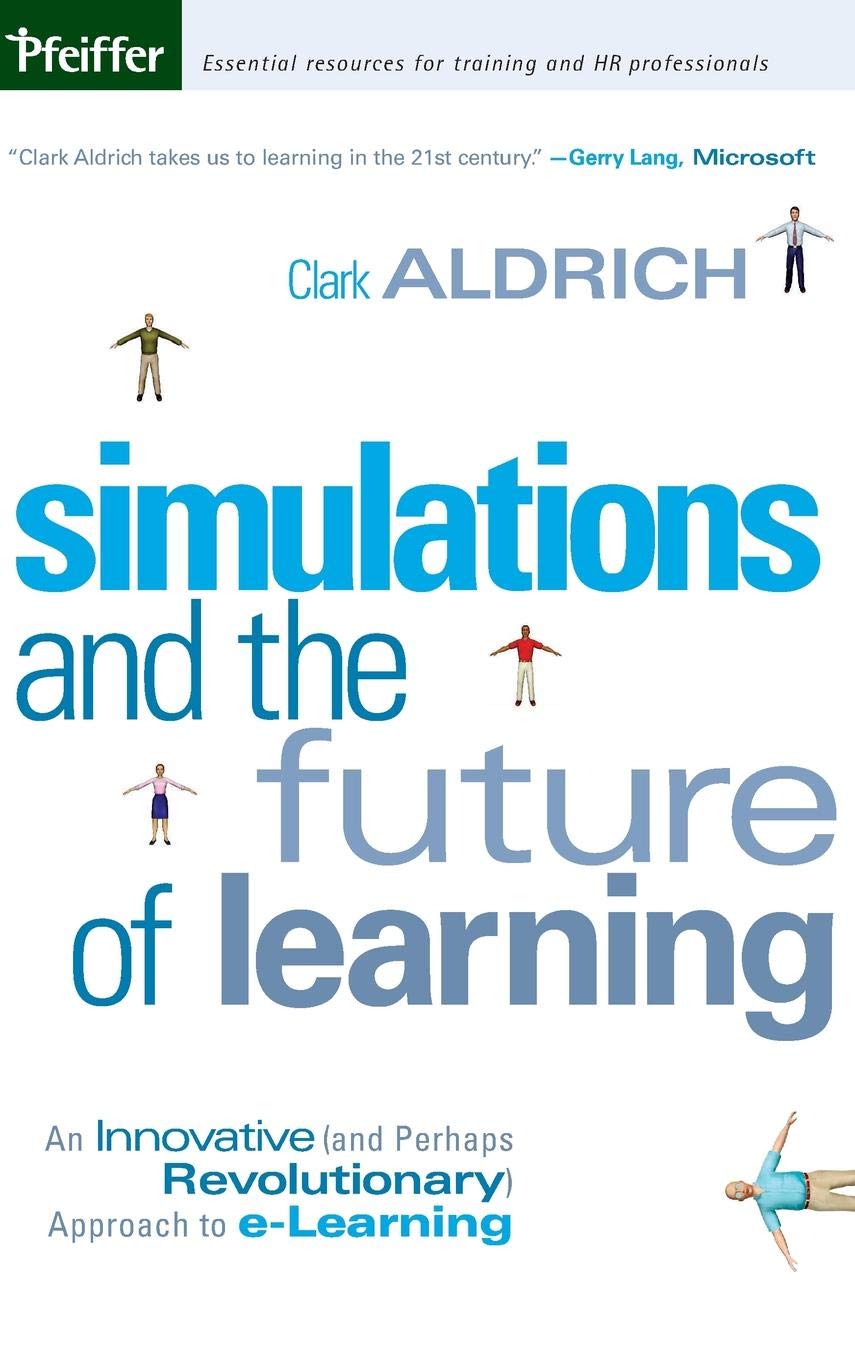

Simulations and the Future of Learning: An Innovative (and Perhaps Revolutionary) Approach to e-Learning
J**R
An intelligent debunking book written with passion and verve
I enjoyed this book for a variety of reasons, but primarily because it is iconoclastic. The author entertainingly recounts his disappointments with elearning. More importantly he exposes just how ignorant and herd-oriented is corporate thinking when chasing new wonder technologies. There are a number sketchy cases studies which reveal how mindful people are of others' opinions of their modernising outlook. Form replacing fuction, rather than following it. It is an easy to read book with lots of good snippets on the foibles of human nature.The discussion of simulation was geared towards the management model and a number of key issues about testing and interaction are covered. A slight issue I would have is whetehr the motivational model implicit in the environmnet would translate easily to other domains. A question worth pondering.The downside of the book, for me, was that I couldn't get a good enough handle on how the sytem was implemented. In other words the technical nuts and bolts that hold it together were not clearly grasped by me anyway. For example, the agent architecture of the system could be explained more thoroughly. If the environment has all the features described in the book, it is an absolutely staggering innovation since it appears to answer many of the most profound problems aggravating the Artifical Intelligence community for forty years, viz. knowledge representation and reasoning.Overall I liked this book. However, I know enough about leadership to realise it isn't found in books. I would recommend this book, but for computer people like myself, a second edition expanding on the technology would be most welcome.
M**R
Sharing learning
I had someone teach me to program over twenty-five years ago so that I could create a simulation with which to teach history. I've built many such simulations since then and seen many more come and go. This book is really the first time I've been allowed to look over the shoulder of someone else tackling all the serious issues associated with such an effort and commenting on them as he went. More importantly, Aldrich achieves something else that is rare in my experience -- he clearly articulates the lessons he learned the hard way so that I can avoid them myslef.So there are at least reasons to read this book. To understand the potential of well crafted simulations for learning, to appreciate the complexity of the craft required to build them, and to learn an enormous amount about that craft. The original Encyclopedie created by Diderot and D'Alembert and their fellow philosophes starting in 1751 set out not only to describe things but to show people those things and explain how they came about. Aldrich has risen to that same pedagogical imperative with an enthusiasm that is infectious. It will have the same value in this century that the thinkers in the 18th wished for their tomes -- it will help generations make things better.
E**T
read it before you take decisions!
Aldrich knows what he is talking about and it reads like a novel. Before you know it you have read most of it and you can reproduce it because of the catchy examples and arguments.Gave me food for thought while designing e-learning for prisoners and stops me going down the tracks the market wants you to follow.Ernst Duvert
R**I
A Good Read!
This is a challenging book, mainly because author Clark Aldrich never seemed to quite make up his mind what kind of book he is actually trying to write. He has so much to teach about simulations that he tries to cover the whole waterfront. He moves from lofty pronouncements about the nature of education to the minutiae of designing one particular simulation, to generalizations about the similarities between fast food and training, to specific analyses of computer games. Any one of these themes could have provided the unifying thread for an excellent book. As it is, this reads a bit like the notes for more than one book yet to be written. But the notes are interesting and extremely well informed, and we found the in-depth detail about the construction of the author's own simulation quite revealing. If you aren't familiar with the growing use of simulations, this is a good place to start learning. You're going to need to know.
Trustpilot
1 day ago
1 month ago